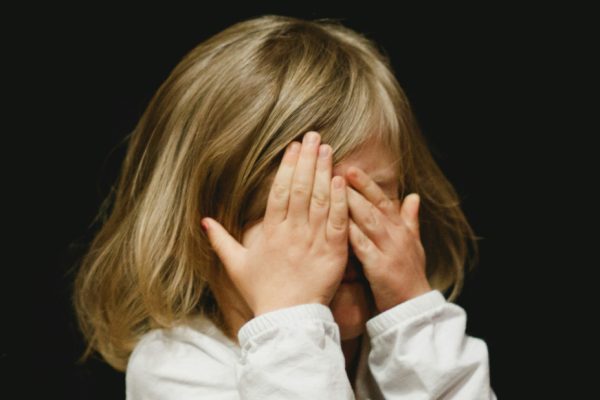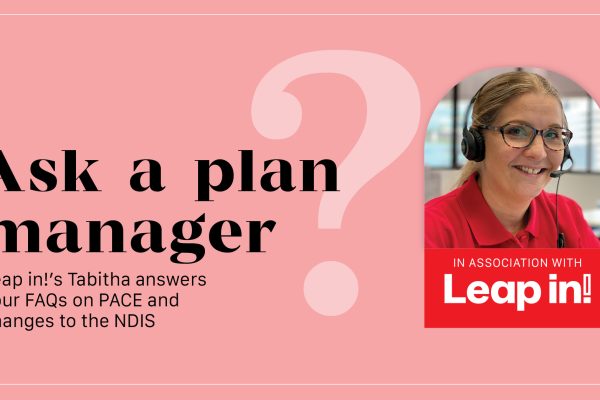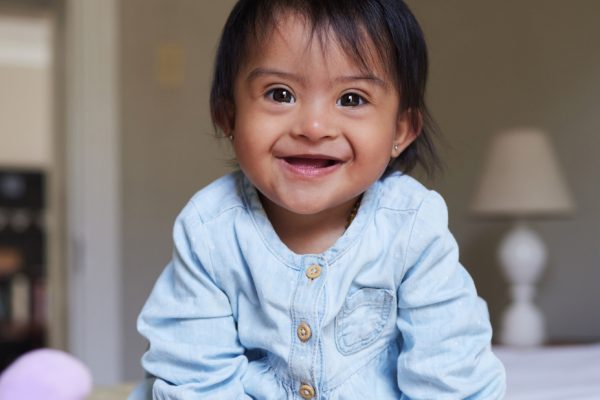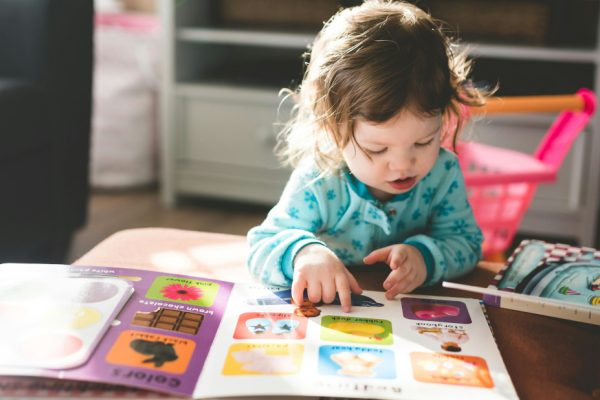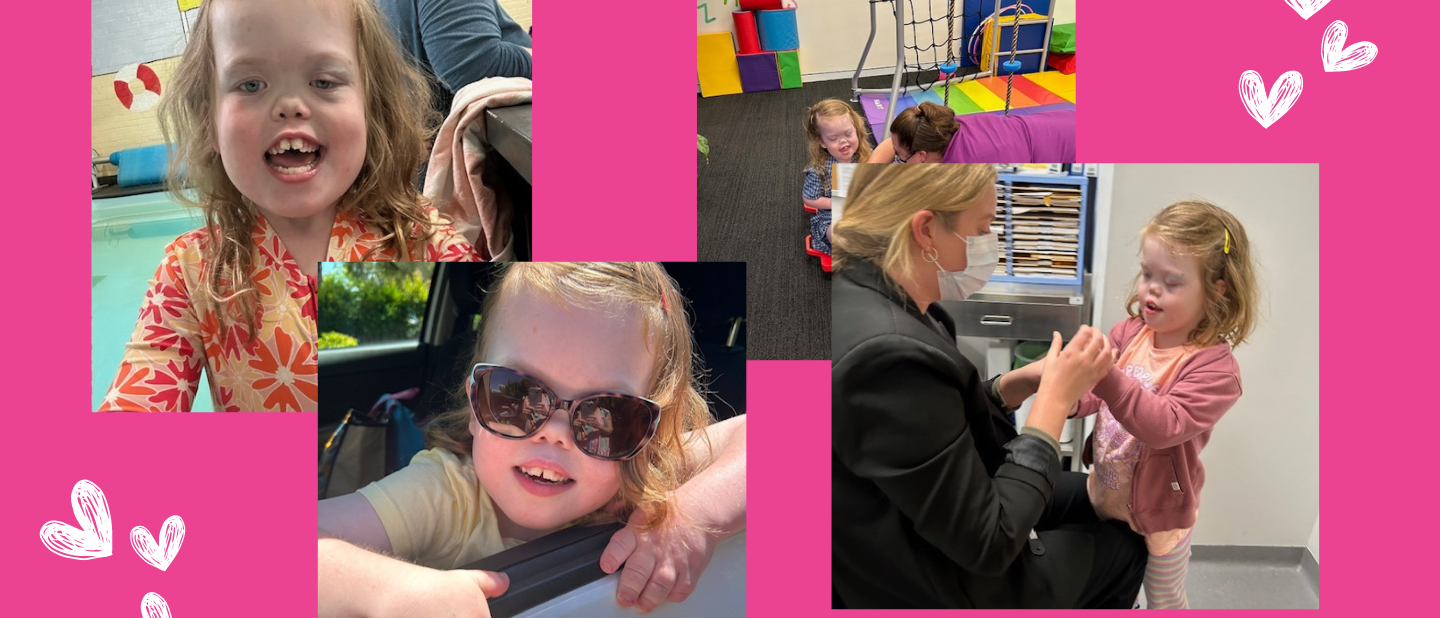
Your story: Kym & Frankie
When Frankie entered the world, it marked the beginning of a journey Kym never anticipated—into the world of Acrodysostosis, a rare genetic condition. In our most recent Q&A session, Kym candidly shares the practical aspects of raising Frankie, one of only 130 diagnosed with the condition worldwide.
How did you first become aware that there might be a concern about Frankie’s health or development? What were the early signs that led you to seek a diagnosis?
We didn’t seek a diagnosis, it found us! Frankie had a low nasal bridge at birth which we originally thought was due to her forceps delivery, but a paediatrician at our 6-week review thought was just cosmetic. Then, she developed a nasal infection that just wouldn’t clear, and at 4 months we got referred to an ENT who asked about her low nasal bridge and said we should see the craniofacial team at Sydney Children’s Hospital regarding options for repair.
Frankie was 6 months old when we got our appointment. And by this stage I had noticed that her fingers and feet were a little different to other babies in our mother’s group, but I thought ‘she’s a chubby baby’, and talked myself out of my concerns.
Craniofacial is like speed dating several specialist doctors over the course of a few hours. We saw the neurologist first, who was concerned that Frankie had a large head, so suspected hydrocephalus and she wanted us to come back and do some test in a few months. We were worried about this, but the surgeon reassured us that it was manageable and treatable. We saw all the doctors, and last was genetics.
The genetics specialist immediately noticed the low nasal bridge, and also commented on Frankie’s hands and feet, my heart started racing and I immediately felt ill……then he casually said that our baby likely had some kind of syndrome or disorder.
Everything he said from that point I don’t think I could hear, I just stared at Frankie playing on the floor with toys blissfully unaware of what was to come.
Can you tell me a bit about the diagnosis Frankie received? What does it mean, and how does it affect her life?
On our return to the hospital for our follow up weeks later we were told Frankie had Acrodysostosis – a very rare genetic condition that is a form of skeletal dysplasia, possible dwarfism, hormone resistance and various developmental delays. She would be only one in 130 people in the world diagnosed with AcroD, and the only person that he knew of in Australia. We were given a photocopy of a fact sheet that was likely written 30 years ago and told try not to “Dr Google”.
It was heart breaking at the time as we didn’t really know how this condition would impact our child and her health and future. We also had to do a blood test to officially confirm the Acrodysostosis diagnosis and confirm if it was type 1 or type 2. Frankie has type 2.
How has the diagnosis impacted your family dynamics and daily routines? Have there been any specific challenges or adjustments you’ve had to make to support Frankie?
It was a tough time that first few months, slowly understanding what AcroD was, how it was going to impact her and finding others out in the world who had been on the journey and could help or share their knowledge. We couldn’t accept that we had to navigate this path alone. We started a Facebook page and within a few months we had created our own little community and support network that would become our tribe.
Through our AcroD community we found out that there was likely going to be additional diagnoses; global developmental delay, severe apraxia of speech, autism, ADHD, sensory processing disorder, OCD, generalised anxiety disorder and much more. We had to watch out for the signs and signals of so much and hoped to just stay ahead of the curve. We flagged the possibilities with therapists and doctors to ensure we were treating and supporting as much as we could and as early as possible.
Frankie was diagnosed with ASD level 2/3 when she was 5, confirmed GAD when she was 6 and recently diagnosed with ADHD. Coupled with OCD, SPD and she now also has a shunt to help regulated her hydrocephalus (fluid on the brain).
What kinds of treatments, therapies, or interventions has Frankie been receiving?
Frankie has been doing speech, OT, physio, music therapy & behavioural therapy over the last seven years. In the last three years, we have focused on speech, OT and behaviour therapy and really focused on what she was learning at school and developing therapies and strategies to help her enjoy school, her learning and feeling independent at home.
Frankie loves structure and routine, and to get the best outcomes for her she needs these two really key components to reduce stress and anxiety.
By creating clear instructions via visual schedules and social stories, Frankie feels like she knows what’s going on, what is expected of her and this in turn helps her feel organised and emotional regulated. It’s been challenging and it still can be very challenging, however we are now better equipped with our own skills on how to support her and how to help her.
Frankie is reading, writing, very good at maths and really developing in being able to communicate her needs.
As a parent, what are your primary concerns and hopes for Frankie’s future in light of her diagnosis? How can those around you support you?
Like all parents, you hope your child is happy, healthy, pain free and has the opportunity for a good life. Setting Frankie up to be the best that she can be, hopefully independent enough to care for herself, have a small job doing something that she finds interesting and is passionate about in the future, making friends and being loved, respected and accepted.
There isn’t a cure for AcroD, no silver bullet solution to her condition and what it brings. And I guess the biggest concern is who is going to care for her when I’m gone.
I find that the support I need, I get from my other special mums; I have created a network of warrior mothers and surround myself with them. It’s important for me to help others, but also seek help from them for myself.



